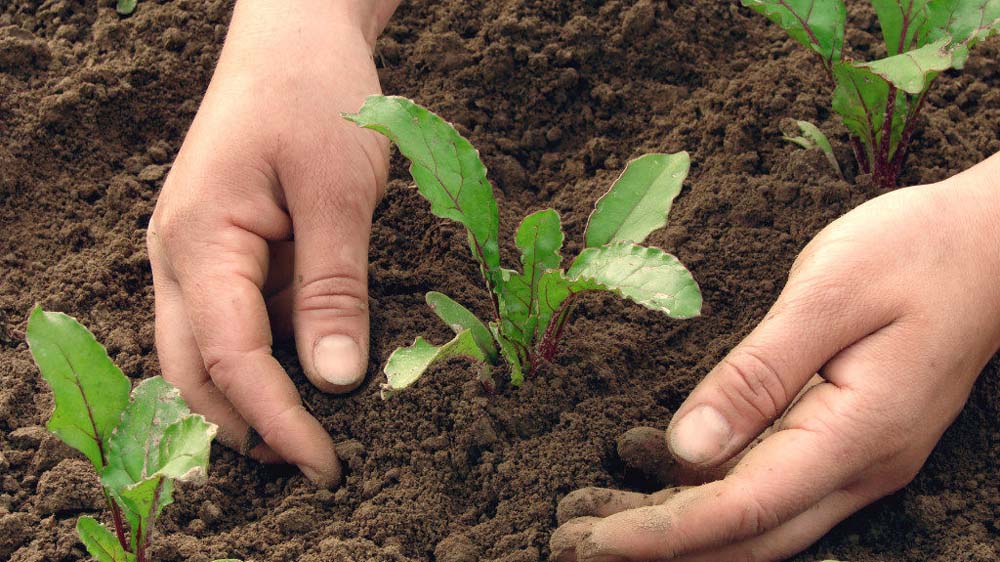
Our mother-nature offers a beautiful ecosystem coated with unbiased love.One should be aware of some tips to conserve the ecosystem, like how to take care of the soil, crop plantation process, the best season for each of the crops etc. A healthy environment will ensure us to eat, feel and stay healthy.
By definition, an ecosystem is a community of living organisms in conjunction with the nonliving components of their environment (things like air, water, and mineral soil), interacting as a system. Organic or traditional agriculture can help in the revival of ecology before we find ourselves facing a grievous calamity.
Following are some of the advantages that organic agriculture brings from the environment’s perspective:
Soil conservation
The soil is the fundamental element in the food chain. The health of the soil has been completely spoiled over time due to the overuse of poisonous chemicals and deprivation of the land of essential nutrients and micronutrients. However, now innumerable soil building practices namely inter-cropping, organic fertilizer, crop rotation, cover crops, minimum tillage, and symbiotic association forms the bedrock of organic agriculture. This improves soil structure and formation. The creation of a more stable soil system is now possible, as organic agriculture increases energy and nutrient cycling. Retentive abilities of the soil for water and nutrients are also strengthened.
Improved Air Quality and Climate Change prevention
Organic agriculture curtails the dependency on pollution emitting fuel by reducing agro-chemical needs, which often demand the use of an extraordinary supply of fossil fuel. Thus, organic agriculture contributes greatly to mitigating global warming and the greenhouse gas effect. Naturally, the air quality is improved, as harmful gases released are cut back.
Long-Term Environmental Sustainability
The measures and practices observed in organic agriculture are all meant to cater to the needs to ensure a sustainable environment. Organic agriculture centrally aims at producing food while laying down an ecological balance to avoid pest problems and soil fertility. The practices, therefore, consider the long-term impact of the agricultural intervention on the agro-ecosystem which contributes to environmental sustainability.
Water preservation
Pollution of open water sources and groundwater systems by chemical fertilizers, pesticides, and toxic metals is a recurring problem, infiltrating the quality of agriculture. Organic agriculture prevents the use of chemicals and they are substituted by organic alternatives such as green, compost and animal manure, biological pest/disease control methods.This ensures that water preservation and retention by improving soil and water properties is done at its optimal level.
Protection of Biodiversity
Organic agriculture is considered to be the major custodian of biodiversity at all levels.Sustenance is the key driver, which is promoted amongst all elements that constitute this delicate balance. At the species level, diverse animals and plants adapt and work on nutrient and energy cycling to achieve the maximum efficiency in agricultural production, whereas, at the gene level, well adapted and traditional breeds and seeds are more desirable for their better chances of survival.
Ecological stability
Organic farming plays a multifaceted role in promoting ecological stability by offering numerous ecological services that include soil stabilization, carbon sequestration, predation, promoting sustainable habitats, nutrient cycling, waste recycling, water preservation, and soil forming and conditioning. This strengthens the dependence on self-resource instead of promoting artificial alternatives.
Making agriculture as an industry
Agriculture has always been a huge part of the Indian diaspora, where 70% of the economy comes from the rural population. Yet with so much strength to back the occupation up, as an industry, agriculture walks on a sketchier ground. This can be due to the fact that amongst the modern population, it is not viewed as a glamorous industry. With the renewed focus on the organic farming, even the agriculture has taken the front row. Unfortunately, Organic has still not taken shape of an industry yet, which is mandatory for the growth of this sector. Export of water in form of rice and conversion of rice land to more and more millets that are economically viable for the ecosystem:
Millets are back into world recognition, with dieticians swearing by its benefits and now here’s another reason to switch to this super grain. It ensures farmers are well-equipped to deal with the climate change. The current condition of climate hampers the yield of wheat and rice grains, which are heavily dependent on good rainfall and huge volumes of water. But millets are equipped to cater to sudden changes and grow in fertile land only. With the organic produce getting highlighted, millets are gaining importance in the commodity industry.
Conclusion
Modern agricultural techniques like genetic modification, use of chemical or sludge-based fertilizers, excessive spraying of chemical pesticides and insecticides are causing an irreparable harm to this delicate relationship. Global warming, climate change and alarming increase in lifestyle diseases are some of the symptoms of the deteriorating condition. Organic Agriculture leads to a better future as it harnesses the power of self-sustenance and the love of nature, to craft a radiant world.
This article has been authored by Pankaj Agarwal, Co-founder & MD, Just Organik.

